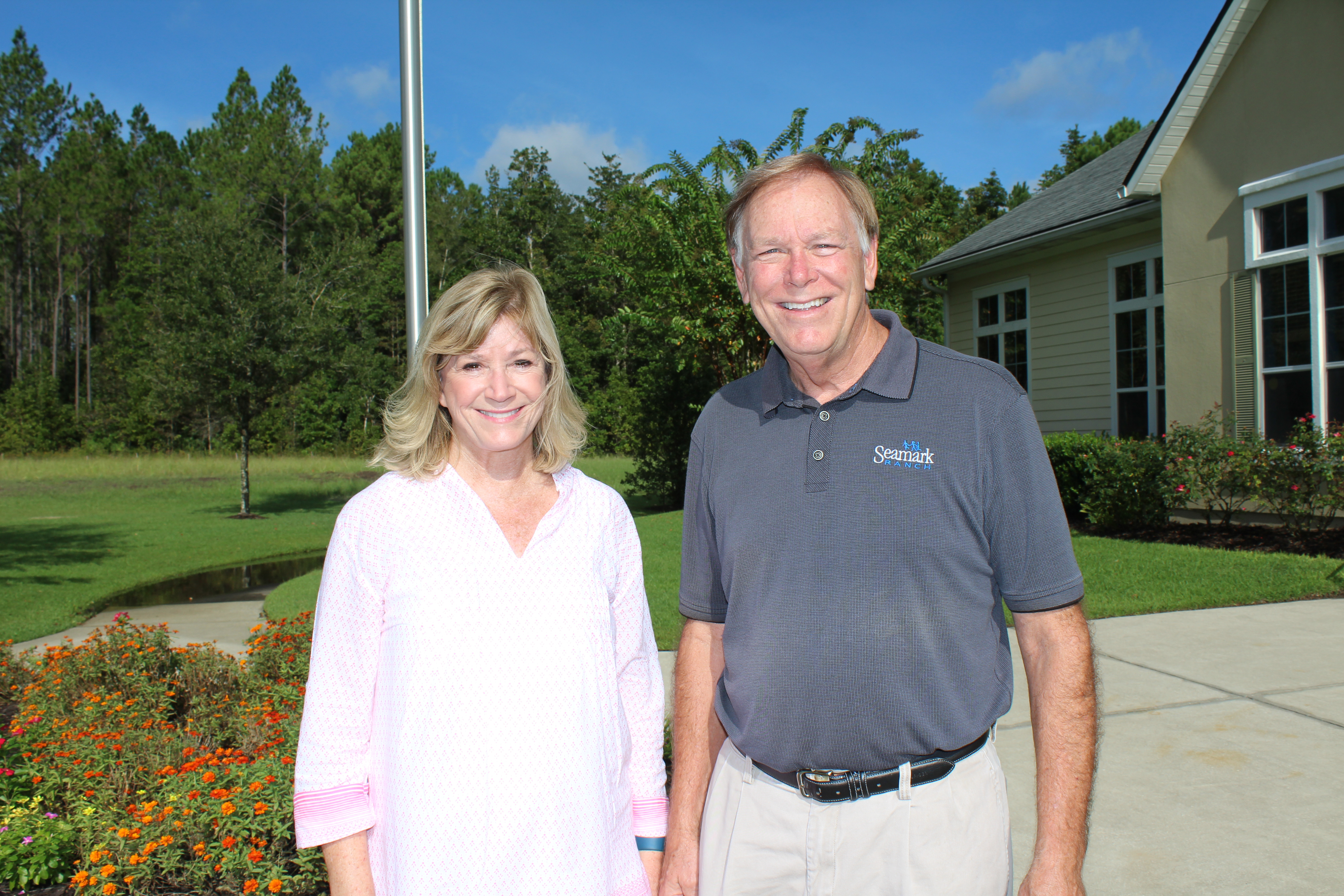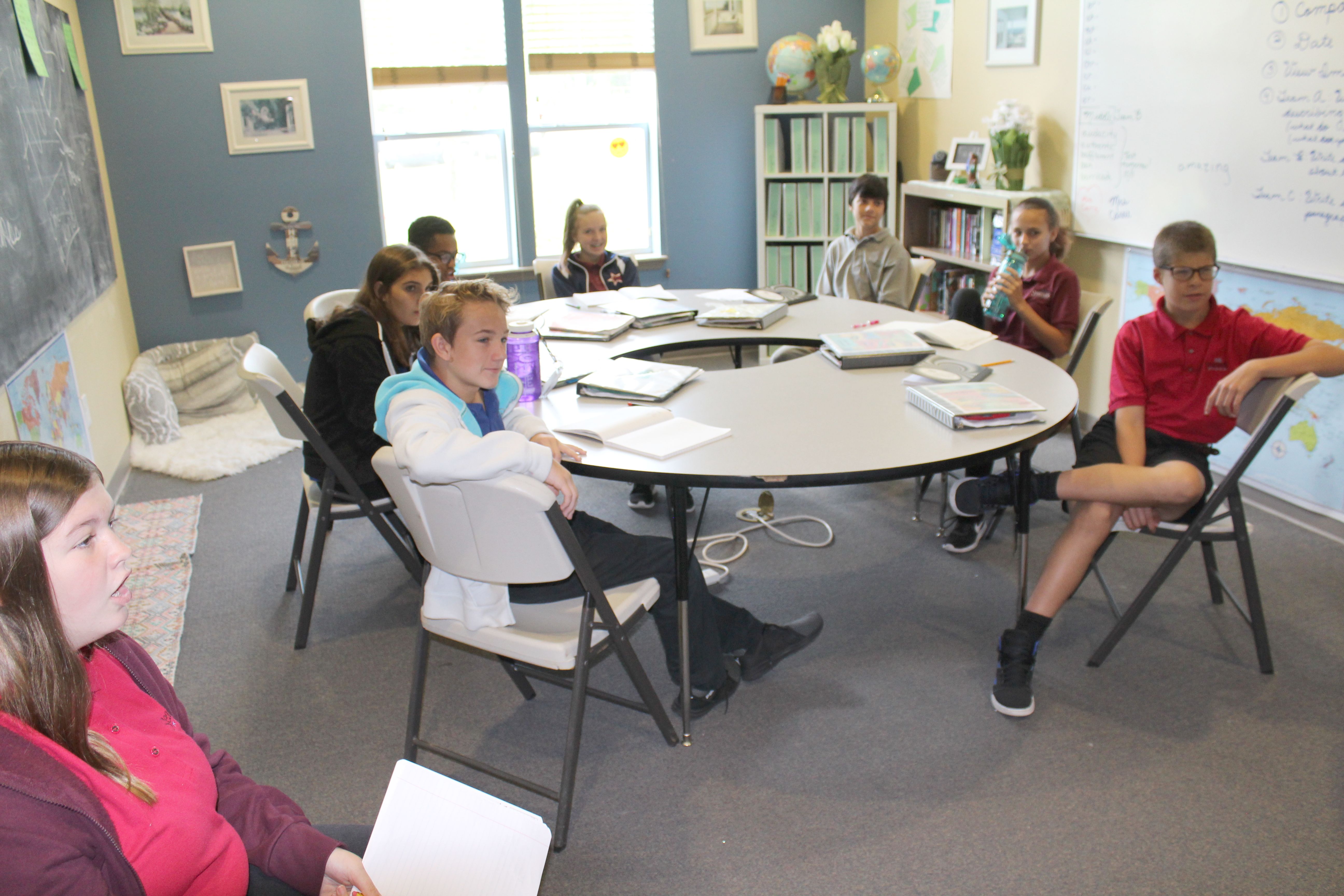Seamark Ranch: A Place of Transformation
Erin Anthony
Director, Communications
Erin Anthony
Director, Communications
By G.B. Crawford
“When they first arrive here, it is the worst day of their lives. On the other hand, it is the best day of their lives.”
So says Fred Meiners. He should know.
As the executive director of Seamark Ranch, a special home for children from families in crisis, Meiners has been part of more than 100 such introductions since the facility opened in Clay County, Florida, 11 years ago.
Each child who enters the ranch has experienced a searing trauma. One little girl watched her mother die from a drug overdose. In another instance, an 8-year-old’s father dropped him off at the front door, then disappeared.
Some residents have been placed by government agencies. Others come to live at the ranch directly from families.

They all carry exceptional psychological and emotional burdens. “We have a lot of kids who have gone through unmentionable things – stuff that they just have to overcome,” he explained. “They just need help in overcoming them and gaining hope for the future and getting the training to have a successful, fulfilling, purposeful life.”
Meiners has witnessed transformations of young residents into self-sufficient, thriving adults. “The real strength of our program is that we have an outstanding, resourceful, compassionate community,” he said. “It is an authentic community response to a crisis with these kids.”
Brenda Davis, a veteran of Seamark’s board of directors, noted that what the children accomplish after they leave the facility proves its value. “My career in social work has given me an insight into the needs of children who have suffered physical and emotional wounds,” Davis said.
“The Seamark community has been able to accomplish marvelous results with its care. We have great stories to tell about how it has helped these children.”

A non-profit, Christian-oriented home, the ranch provides educational services and personal development training for 16 children in addition to basic care.
After a construction project is completed in January, the number will increase to 28. In the future, Meiners and his team plan to support and nurture up to 100 children at a time.
House parents who live in the residential buildings with the young people offer positive guidance and attention as part of a comprehensive network of support, complemented by a team of other staff members.
Foster parenting in a compassionate home is the central feature of care. But the facility also inspires the acquisition of skills. A school offers a comprehensive K-12 curriculum that matches or exceeds state educational standards.
All Seamark programs are designed to help young people acquire the capabilities and personal character necessary to become productive citizens in their communities. Each student receives sustained, individual tutelage.
In another dimension of training and support provided for residents, teachers integrate agriculture within regular instruction. The 468-acre property includes a working farm that gives the children practical applications of what they learn in the classroom.
An equestrian program reinforces positive emotional and social maturity by emphasizing personal responsibility, a positive work ethic and collaboration in groups.
Residents care for the horses as well as all other animals on a daily schedule. They also grow an impressive range of crops throughout the year, including blueberries, grapes, sugar cane, vegetables and ornamental plants.
“A lot of our students have never been in an agricultural setting before,” said Ashley Stockton, a teacher at the school. “We try to expose them to the basics of livestock and horticulture. They have a chance to learn about it here in the classroom, then go out the next day and do it.”
In her view, the unique teacher-student ratio in each classroom makes superior educational achievement possible. “It is a really amazing environment in that it provides so much interaction between teachers and students,” Stockton explained.
The agricultural program is the first step the directors and staff have taken to implement a full schedule of vocational-technical courses. But agriculture will remain the premier discipline.
“God gave us all of this land and he gave us the land to use as a farm for the foundation of our community and as a foundation of the school,” Meiners said.
Various Farm Bureau groups have assisted the ranch since its founding in 2001 – most notably the Clay County Farm Bureau. Gayward Hendry, the local organization’s president, said members have provided Seamark money, volunteers and farm assistance since its founding.
“It did not take us very long to recognize that their values and ideals were pretty much directly in line with Farm Bureau’s,” Hendry said. “The school gives the student not only a good academic record, but also a good spiritual and moral background.”
A donation by the Florida Farm Bureau State Women’s Leadership Committee has also supported Seamark’s farm program.
“Farm Bureau has been our supporter for years,” Meiners said. “It’s in our heart.”
With such a community, the children can look forward to many more best days ahead.
For more information, visit https://www.seamarkranch.com/.
G.B. Crawford is director of public relations for the Florida Farm Bureau.
Trending Topics
VIEW ALL